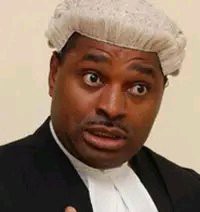In a thought-provoking interview on Arise TV from 4:24, Labour Party chieftain Kenneth Okonkwo provided a critical analysis of General Yakubu Gowon’s post-Civil War leadership, highlighting unfulfilled promises and subsequent personal transformation.
Addressing Gowon’s post-war declarations, Okonkwo recalled, “After war, Gowon declared again ‘no victor, no vanquished’ and promised to reconcile, rehabilitate, and reconstruct the Southeast, which he failed again to do.” The Labour Party leader expressed disappointment in the implementation of these promises, noting, “All the available opportunities for him to make Nigeria one and consolidate that unity, he was not able to do.”
Okonkwo suggested that Gowon’s own experience with military overthrow may have led to a reassessment of historical events. “After a while, when he himself was overthrown, maybe he recognized that what happened in 1966 was a military coup and not any ethnic coup, because he himself was thrown away by the same military people,” he observed.
The Labour Party chieftain then highlighted Gowon’s personal evolution following his removal from power. “One thing is clear, it looks as if he went into theology, had a rebirth, and came back to apologize and ask for forgiveness for his role in the Civil War,” he stated.
The Labour Party leader’s remarks touch on the complexity of personal growth in political leadership. His observation of Gowon’s transformation from military leader to a figure seeking reconciliation adds a human dimension to Nigeria’s political history.
Through these observations, Okonkwo adds to the broader conversation about leadership accountability and the long-term impact of post-conflict policies on national development. His perspective emphasizes the importance of following through on promises of reconciliation and reconstruction.

